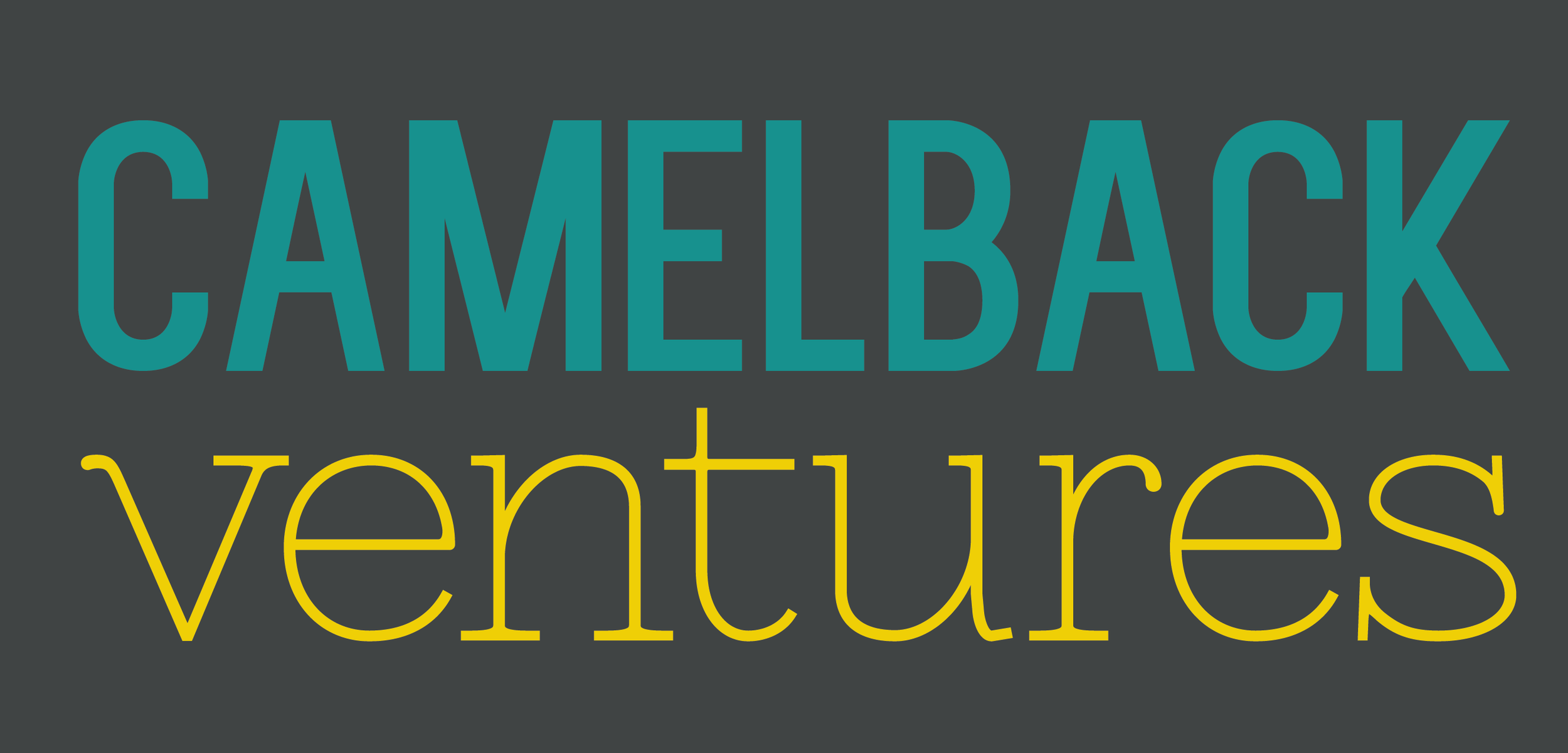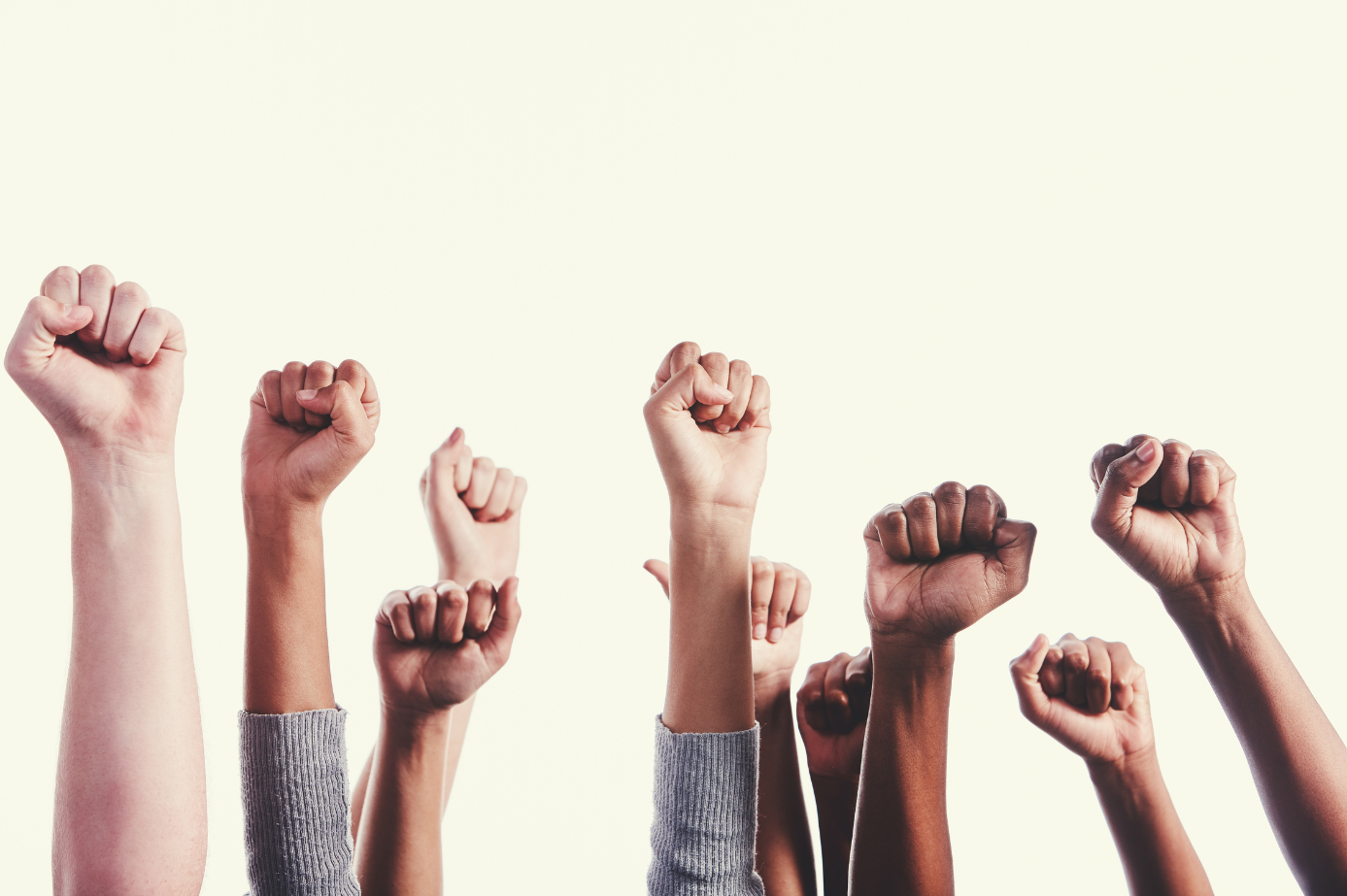Legacy is a strange thing. The word itself (from my experience) can conjure up all kinds of psychological baggage for those lucky enough to have significant wealth. Unfortunately, it’s usually unhelpful baggage, because the word tends to conjure up images around obligation, duty and (yes) guilt.
Read MoreEntrepreneurship has become increasingly ubiquitous, with individuals harnessing their talents and passions to launch new ventures. It’s often glamorized, with a strong emphasis on success stories and the allure of being one's own boss. However, this idealized image frequently overshadows the significant toll entrepreneurship takes on the wellness of founders. Camelback Ventures shares what wellness supports it is leaning into in support of diverse founders as well as lessons learned.
Read MoreCamelback Ventures’ The Well Founded Retreat was a prime example of communal care in action. This initiative aimed to support the growth and sustainability of founders of color by providing a space for rest, connection, and reflection. The retreat included activities such as group fitness classes, yoga, meditation, and reflective workshops. We share some key takeways and call for other funders to invest in the wellness of diverse founders.
Read More'“Entrepreneurship comes with a burden of responsibility, a burden that easily founders of color take on, because we've seen the repercussions if no action is taken in our communities. We've seen that it can lead to no health care, a lack of insured folks in our family, a lack of equitable education, lack of affordable housing, lack of education opportunity. We have taken on this extra role that, sadly, we did not create our problems, yet we're taking them on, and that's a lot.”
Read More“Since our team set out about 18 months ago to begin learning about systems change in funding governance, our idea that governance structures need to shift has only been affirmed. AND, the difficulty of reaching the top decision makers in order to truly make changes has become apparent. While Camelback Ventures’ work is all grounded in working in community, we have learned that in order to do this systems change work, collaboration with others seeking to make change is absolutely essential.“
Read MoreIn this insightful episode of “It’s Not Your Money,” Stephanie Brobbey from Good Ancestor Movement dives deep into her experience disrupting the private wealth industry through a reparative approach and explores strategies for moving wealthy folks towards racial justice learning and wealth redistribution.
Read MoreIn this dynamic episode of "It's Not Your Money," Efraín Gutierrez delves deep into “the patriarchy,” how it has shaped philanthropy, and what a different way of doing and being might look like.
Read More“Doing away with applications will create a major disruption in the way foundations typically learn about new organizations, but it won’t stop them from learning altogether. In fact, it may draw more philanthropic leaders out of offices and echo chambers, and into relationships and communities where they can gain a better understanding of what is needed and which organizations are leading truly impactful work.”
Read MoreIn this insightful ”It’s Not Your Money” episode, Lisa Flick Wilson and Staci Walker from the Radical Optimist Collective to share their experiences working with philanthropy teams on racial justice learning, how that is different and similar to working with teams in other industries, and how their approach as a collective differs from typical org white supremacy cultural norms.
Read More“Just as we expect founders to design products and services that meet the needs of their target markets, I contend funders must also put in the effort to design financing instruments that align with the needs of BIPOC, women and nonbinary social entrepreneurs.“
Read More“It can be so easy to move through our daily to-dos towards our missions and forget to actually stop and embrace the why. Let our hearts lead. So much of the work is about us. Examine how we choose to show up for ourselves, our people, our mission. Ground ourselves in intention, especially when doing work that moves us towards a liberated future.”
Read More“Co.act Detroit aims to promote a more equitable funding landscape in our region by piloting participatory practices and centering community voices. Our role as a convener also allows us to advocate for change across philanthropy by creating space for honest dialogue, peer learning, and reimagining decision-making.”
Read MoreCamelback Ventures is proud to welcome our fourth cohort of the Capital Collaborative by Camelback Ventures.
Read More“By making a conscious effort to elevate our own psychological operating system, we can expand our view beyond our own immediate needs and fears. This more resourceful perspective equips us with the depth required to tackle systemic issues more holistically, thus opening the door for more enduring and equitable solutions in the realm of philanthropy.”
Read More“As human beings, we are all hard-wired through millions of years of adaptation for a fear-based fight or flight mental operating system. In my experience, it’s especially important to pay more attention to my own wiring when I am involved in philanthropy that’s operating across lines of difference. It’s only when I am able to break out of these default psychological settings that I am able to elevate my perspective and truly see the bigger systems of which I am a part—and to help those I am working with to do the same. “
Read More“In a time characterized by youth-led global political movements advocating for issues that directly impact their future, such as gun control and climate change, the need to include youth voices in decision-making has become more pressing than ever. Recognizing this imperative, the Search & Align team at Camelback Ventures embarked on an experiment to integrate youth perspectives into our Fellowship selection process through the creation of the Youth Leadership Award (YLA).”
Read More“‘White foundation staff often have difficulty discerning between helping and controlling the work of Black leaders.’ This statement precisely encapsulated the issue at hand, bringing clarity to what we have been seeking from funders. We need your help in supporting the solutions that we, in collaboration with our communities, are uniquely positioned to create and implement.”
Read More“This is hard work. It is uncomfortable. The fact that we can ‘step away’ from this is a sign/type of privilege. The important thing is to commit, engage and sincerely work toward improving. White people have a responsibility to be a part of dismantling systemic racism, as we certainly created it.”
“Yes, the work of ending racial injustice is hard and complicated, but it is also okay to allow for creativity, laughter, futuristic visioning, and idealism.”
“Having a group of professionals who share our values and work in a similar space allowed opportunities for collective problem-solving, exposure to new ideas and practices, and brainstorming solutions by harnessing the collective wisdom of such a great group. Just as importantly, we emboldened each other to take risks. We pushed each other to take the bolder step, have the difficult conversations, and be honest about our insecurities and vulnerabilities. This compels us to do more.”
Read More










![Elevating My Psychology In Pursuit of Equity, Impact and Joy Through Philanthropy [Part Two]](https://images.squarespace-cdn.com/content/v1/57e2d6ab440243c69eb9cb95/41d4a1b7-d5af-49f3-843c-9d0c1c2ea243/GivingCompassPhoto_Oct2023.png)
![Elevating My Psychology In Pursuit of Equity, Impact and Joy Through Philanthropy [Part One]](https://images.squarespace-cdn.com/content/v1/57e2d6ab440243c69eb9cb95/1695856731054-0U51N4MDV87FP4PU50F9/GivingCompassPhoto_Sept2023.png)


